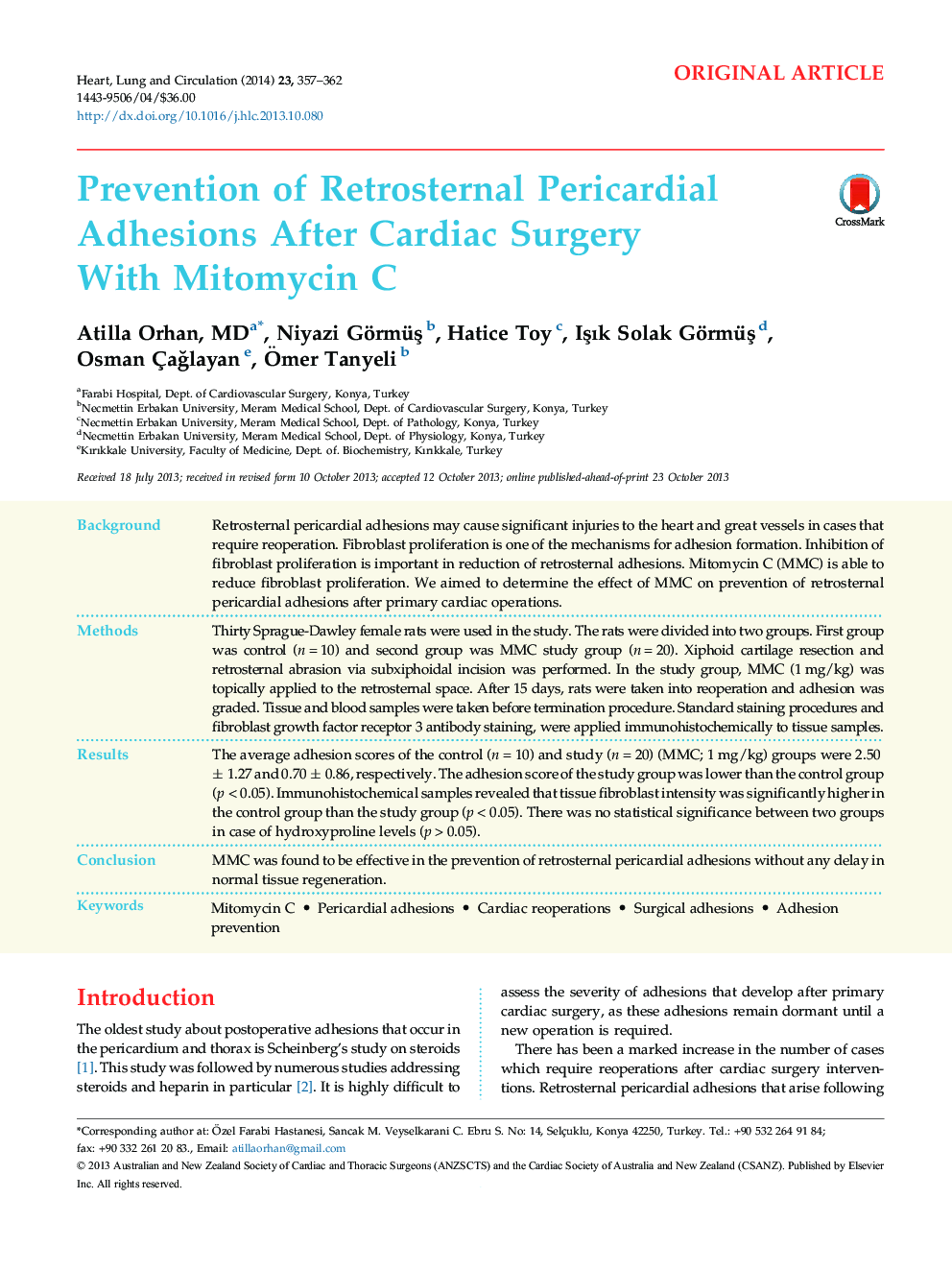| Article ID | Journal | Published Year | Pages | File Type |
|---|---|---|---|---|
| 2917213 | Heart, Lung and Circulation | 2014 | 6 Pages |
BackgroundRetrosternal pericardial adhesions may cause significant injuries to the heart and great vessels in cases that require reoperation. Fibroblast proliferation is one of the mechanisms for adhesion formation. Inhibition of fibroblast proliferation is important in reduction of retrosternal adhesions. Mitomycin C (MMC) is able to reduce fibroblast proliferation. We aimed to determine the effect of MMC on prevention of retrosternal pericardial adhesions after primary cardiac operations.MethodsThirty Sprague-Dawley female rats were used in the study. The rats were divided into two groups. First group was control (n = 10) and second group was MMC study group (n = 20). Xiphoid cartilage resection and retrosternal abrasion via subxiphoidal incision was performed. In the study group, MMC (1 mg/kg) was topically applied to the retrosternal space. After 15 days, rats were taken into reoperation and adhesion was graded. Tissue and blood samples were taken before termination procedure. Standard staining procedures and fibroblast growth factor receptor 3 antibody staining, were applied immunohistochemically to tissue samples.ResultsThe average adhesion scores of the control (n = 10) and study (n = 20) (MMC; 1 mg/kg) groups were 2.50 ± 1.27 and 0.70 ± 0.86, respectively. The adhesion score of the study group was lower than the control group (p < 0.05). Immunohistochemical samples revealed that tissue fibroblast intensity was significantly higher in the control group than the study group (p < 0.05). There was no statistical significance between two groups in case of hydroxyproline levels (p > 0.05).ConclusionMMC was found to be effective in the prevention of retrosternal pericardial adhesions without any delay in normal tissue regeneration.
